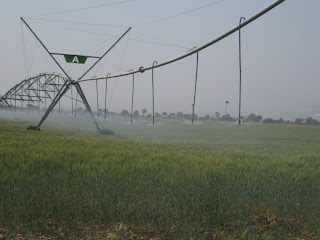
Mzuzu!
It's beautiful here in the north of Malawi. Mzuzu is the smallest of Malawi's 'cities' (there are only three). I'm told it's designation as a city was a bit of a political bribe. But, even though it is pretty small it definitely has its good qualities. I have to admit that it doesn't have the bustling vibe that Lilongwe has, but the city has a very neat and tidy feel, and the people are even more friendly and easy going than they are in Lilongwe. The market and the stores are also stocked with lots of good stuff that has come over the border from Tanzania. Lots of people speak English here too, which is a good thing for me because the second most popular language in the north is Tambuka not Chichewa (admittedly, my Chichewa isn't that good either).
Mzuzu is surrounded by forest, which is rare in Malawi because there are so many people in so little space, and wood (often made into charcoal) is the main means of heating and cooking. The forest around Mzuzu is being managed, so depletion here is a

little less of a concern than elsewhere. There is also a good timber business here... sort of reminds me of home. Mzuzu is also a little higher in elevation than Lilongwe, so it's a little cold (I need a few blankets at night).
Right now, I'm staying in a little motel just outside of town. My evening journey home is my favourite part of the day. I leave the office and walk five minutes to the market. I work my way through the market picking up my dinner as I go. As I enter the market I buy an apple (a bit of a luxury here - there are local oranges, tangerines, avocados, tomatoes, bananas, and more - but the apples are brought in from South Africa). As I wind my way through the market I'll pick up some combination of p

opcorn, freshly roasted peanuts, bread, bananas, sweet bread with some kind of sweet topping, local banana bread made with maize flower, and/or a lollipop. I'm not sure if it's a balanced meal, but it is quite delicious and it works well with my current lack of kitchen facilities.
After, I'm finished picking up my dinner I wander across the road to the spot where the minibuses and the taxis stop. The minibuses run long distances, so I share a taxi for the 5 or 6 minute drive out of town. I get dropped off outside of the Mzuzu University (a visit to the university is in my future plans), which is the last spot that the taxis stop. Then, I walk for another 5 minutes or so to the motel. The walk is up one hill and then into a valley. As I walk, the setting sun slides away under the hills in front of me. It's a wonderful way to end the day.
 On Monday, I visited with Mada and her sister Millyanna. Mada has just passed Standard One (Grade 1). (The school year here ends in November, well at least the primary school year does - other types of schools continue to mystify me). She had a bit of extra help over the last month or so (a tutor), and she's managed to catch up with the rest of her classmates (you may remember that she started school half way through the year). Mada is just about to embark on the second year of her schooling career - in Standard Two.
On Monday, I visited with Mada and her sister Millyanna. Mada has just passed Standard One (Grade 1). (The school year here ends in November, well at least the primary school year does - other types of schools continue to mystify me). She had a bit of extra help over the last month or so (a tutor), and she's managed to catch up with the rest of her classmates (you may remember that she started school half way through the year). Mada is just about to embark on the second year of her schooling career - in Standard Two.
















































